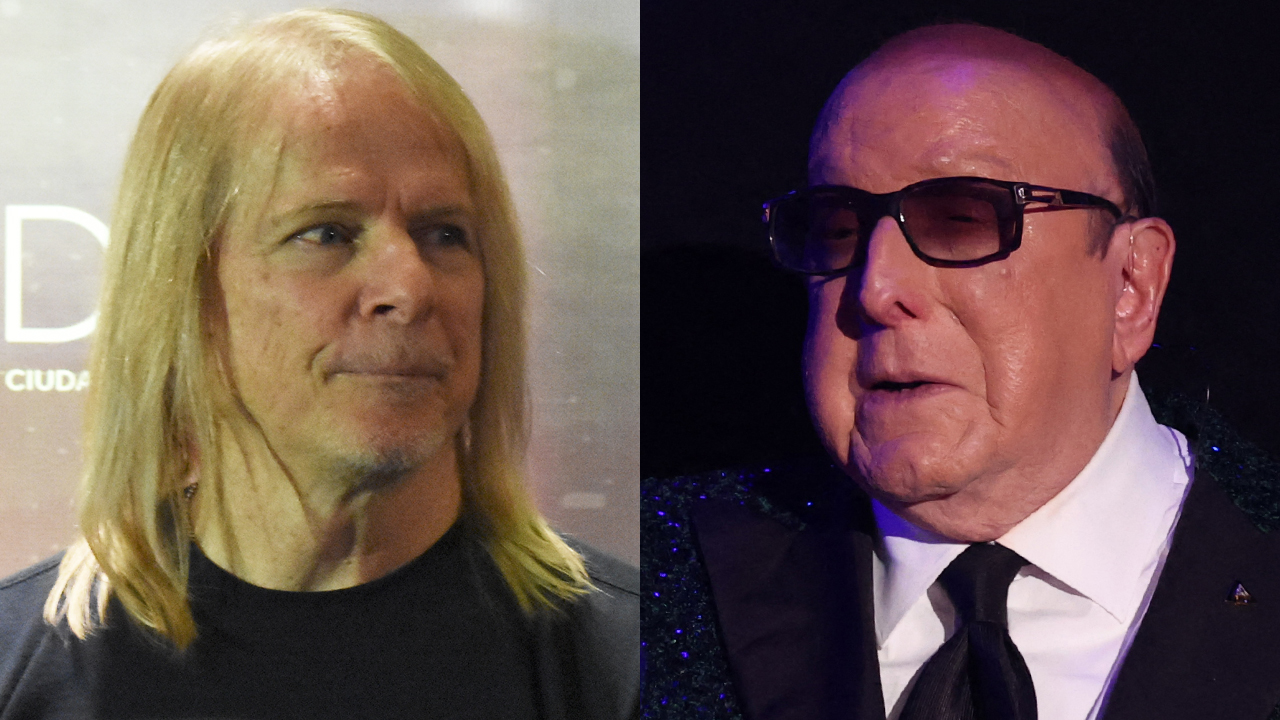“I realised this music is what influenced the stuff I’d been listening to – Pink Floyd, Genesis and so on”: Ben Short saved a Stravinsky album from a skip, and A Formal Horse was the result

Select the newsletters you’d like to receive. Then, add your email to sign up.
You are now subscribed
Your newsletter sign-up was successful
Want to add more newsletters?

Every Friday
Louder
Louder’s weekly newsletter is jam-packed with the team’s personal highlights from the last seven days, including features, breaking news, reviews and tons of juicy exclusives from the world of alternative music.

Every Friday
Classic Rock
The Classic Rock newsletter is an essential read for the discerning rock fan. Every week we bring you the news, reviews and the very best features and interviews from our extensive archive. Written by rock fans for rock fans.

Every Friday
Metal Hammer
For the last four decades Metal Hammer has been the world’s greatest metal magazine. Created by metalheads for metalheads, ‘Hammer takes you behind the scenes, closer to the action, and nearer to the bands that you love the most.

Every Friday
Prog
The Prog newsletter brings you the very best of Prog Magazine and our website, every Friday. We'll deliver you the very latest news from the Prog universe, informative features and archive material from Prog’s impressive vault.
Six years after A Formal Horse released their first EP, the Southampton avant-rockers returned with their long-awaited debut album. In 2019 they told Prog how they’d faced plenty of challenges on the way – but that the resulting LP, Here Comes A Man From The Council With A Flamethrower, had been worth the effort.
'Stravinsky saved from a skip’ could easily pass as a lyric from A Formal Horse’s powerful 2019 debut album, Here Comes A Man From The Council With A Flamethrower. But it’s actually a scene from guitarist Ben Short’s schooldays. Chancing upon an LP of Stravinsky’s The Firebird in a box destined for landfill, Short rescued it, and once home, found himself revelling in thitse rich harmonies and melange of tonal colours.
“This was in the 90s when I was in my teens,” he recalls. “It opened my ears to 20th-century classical music. From that, I realised that this music is what influenced the stuff I’d been listening to – Pink Floyd, Genesis and so on.” Nor was the fact that Yes deployed the finale of The Firebird as their grand entrance music lost on him. “That freak encounter was part of the steamroller effect that got me into what I’ve been interested in for the last 20 years.”
That interest has been made manifest in a band. Their bracing mix of sharp, spiky riffs, abrupt time and timbre gear-shifts, topped with vocals with pristine articulation, power-trio dynamics and a side portion of Canterbury-esque whimsy has been winning fans since 2013. While some groups have a penchant for putting out as much material as they can, A Formal Horse have been taking things not at a gallop but more of a canter. Their discography may be modest in appearance: three EPs over a five-year period, and only now a full-length album; but it’s the quality that counts.
“We put out three EPs in that time mostly because, being humans with jobs and families, making 20 minutes of music is pretty easy,” explains Short. “Making 45 minutes of music is not pretty easy, which is probably reflected in the fact that it’s taken well over two years to put the album together.”
Working with engineer and producer Rob Aubrey, whose credits over the years include Jadis, John Wetton and Geoff Downes’ Icon, and Big Big Train, the band have developed a quirky yet impactful sound that somehow manages to be both challenging and deceptively accessible.
Their writing has evolved over the years too, says Short, with everything aiming for more concision than when they first started out. That urgent, hurtling energy is expertly handled and guided to its target without any waste, mess or fuss. Highly focused, they execute what others would regard as difficult musical manoeuvres with an insouciant disregard for their awe-inducing fireworks that burst open in their wake.
Sign up below to get the latest from Prog, plus exclusive special offers, direct to your inbox!
“The songs tend to be relatively short with the rambly bits split off on their own,” he explains, “which hopefully helps the record hum along at a better rate rather than getting bogged down on anything too long.” Not that such brevity has led to any diminution to the scope and scale of what the band delivers. Each track is honed and sharpened to a fine point for maximum impact, it’s the result of a lot of sifting as they work through the writing process, another reason for them taking their time.
If the ideas stop bouncing it means we’ve given up because they’re crap, or it means they’re finished
Remotely sharing files, ideas bounce backwards and forwards between the other members of the band: bassist Russell Mann, drummer, Mike Stringfellow, and vocalist Hayley McDonnell. “If they stop bouncing back and forth, it means one of two things: either we’ve given up because they’re crap and nobody wants to look at them, or it means that they’re finished.”
There’s something very disconcerting about the face that stares out at you from the cover of Here Comes A Man From The Council With A Flamethrower. Created by Julia Soboleva, also responsible for the artwork on their last EPs, and like those more famous enigmatic visages adorning Zappa’s Hot Rats or King Crimson’s In The Court of The Crimson King, it possesses a penetrating intensity; a sense of there having been some interrupted furtive movement, the subject having been caught in the act of doing something unsavoury and not entirely fit for publication in a family periodical such as Prog.
Short scoffs at any direct comparisons to those covers from the 1960s but agrees there’s nothing accidental whatsoever about the choice of such a striking image to house their first full-length release. “We talked a lot about covers and getting the design right and we picked something, not accidentally, that looks really good as a small thumbnail on things like Spotify and Apple Music.
“You want something that’s effective in that sense but which also looks good on a CD or vinyl. There’s so much subtext in that picture, without a doubt, and I love the ambiguity of it.”
That love of the opaque and the enigmatic finds expression in the band’s lyrics. Penned by Short, and beautifully articulated by McDonnell’s near-operatic vocals, which either cleave or coax their way through the power-trio barrage of the Horse at full pelt. They variously hint at some unspecified deviation, the subversion of once-safe assumptions, or of bridges being burnt – though there’s no clear evidence as to who might have built or even crossed them in the first place.
The main thing is to be compassionate… Yet I write lyrics that point out the worst things in people
Short stoutly defends his embrace of the obscure in his wordplay, arguing that it’s better for listeners to make up their own sense of meaning to what they hear. “The main thing is to be compassionate and engage with people in a loving way. Yet somehow I write lyrics that point out very strange, and often the worst, things in people!”
He reveals that A Formal Horse are already hard at work on the next album. Though pleased at the positive reception to their debut, they’ve definitely got the bit between their teeth. “Anybody who’s worth anything is constantly moving, aiming to do the next thing.”
Sid's feature articles and reviews have appeared in numerous publications including Prog, Classic Rock, Record Collector, Q, Mojo and Uncut. A full-time freelance writer with hundreds of sleevenotes and essays for both indie and major record labels to his credit, his book, In The Court Of King Crimson, an acclaimed biography of King Crimson, was substantially revised and expanded in 2019 to coincide with the band’s 50th Anniversary. Alongside appearances on radio and TV, he has lectured on jazz and progressive music in the UK and Europe.
A resident of Whitley Bay in north-east England, he spends far too much time posting photographs of LPs he's listening to on Twitter and Facebook.




